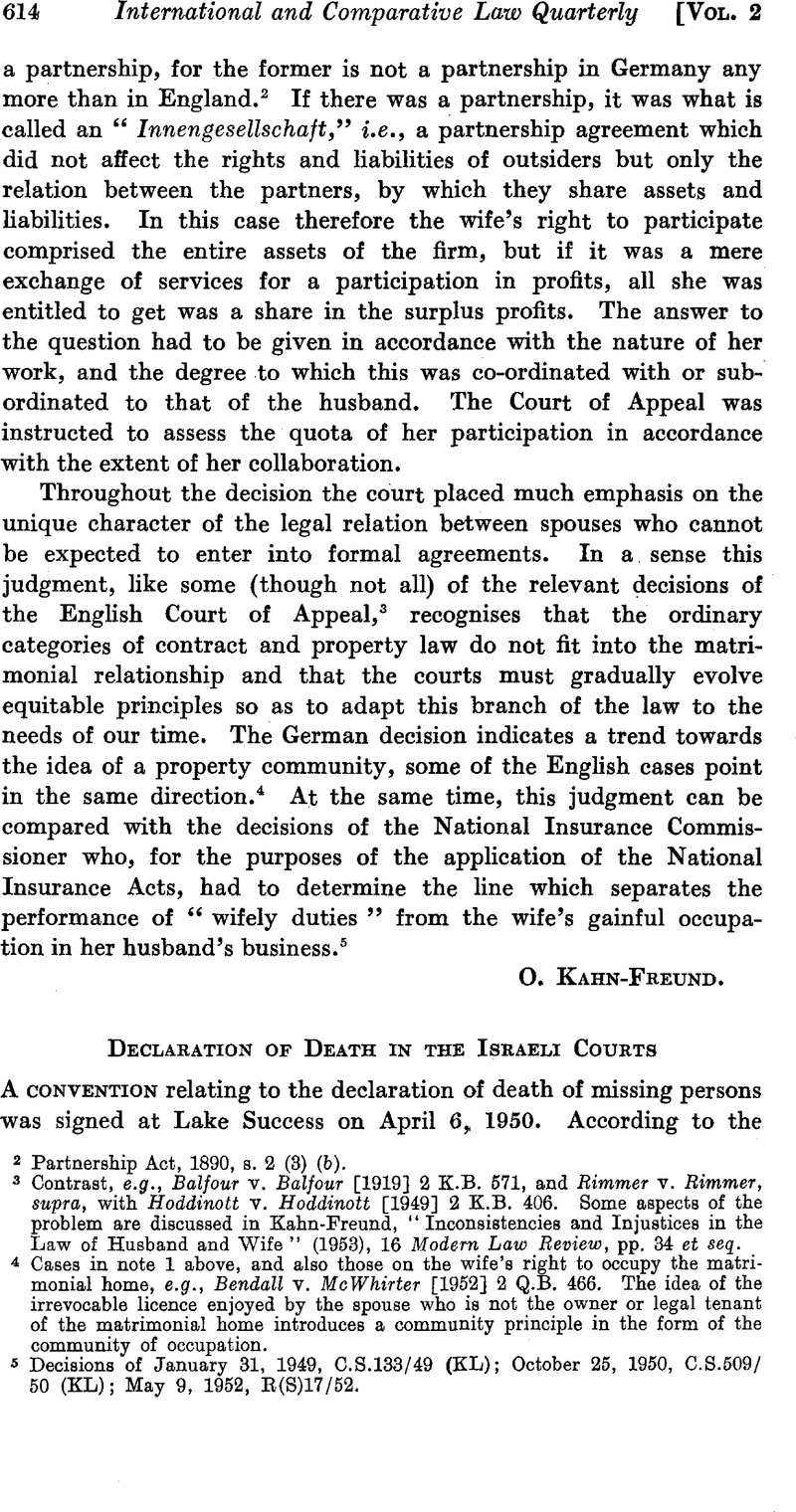No CrossRef data available.
Article contents
Declaration of Death in the Israeli Courts
Published online by Cambridge University Press: 27 January 2016
Abstract

- Type
- Notes
- Information
- Copyright
- Copyright © British Institute of International and Comparative Law 1953
References
page 616 note 1 Statute Book, No. 93, of March 13, 1952.
page 616 note 2 Probate and letters of administration are granted in Israel in the same way as in England. The estate can, however, be wound up without such grant, and title there to may be taken by obtaining an order declaring the succession. This order, following Continental models, declares who the heirs of the deceased are.
page 616 note 3 Public Health Ordinance (Cap. 121 of the Laws of Palestine), later replaced by the Public Health Ordinance, 1940.
page 617 note 4 “The jurisdiction of the Civil Courts shall be exercised in conformity with the Ottoman Law in force in Palestine on November 1, 1914, … and such Orders in Council, Ordinances and Begulations as are in force in Palestine at the date of the commencement of this Order, or may hereafter be applied or enacted, and subject thereto, and so far as the same shall not extend or apply, shall be exercised in conformity with the substance of the common law, and the doctrines of equity in force in England.”
page 620 note 5 The convention expressly provides that creditors should have no locus standi.




